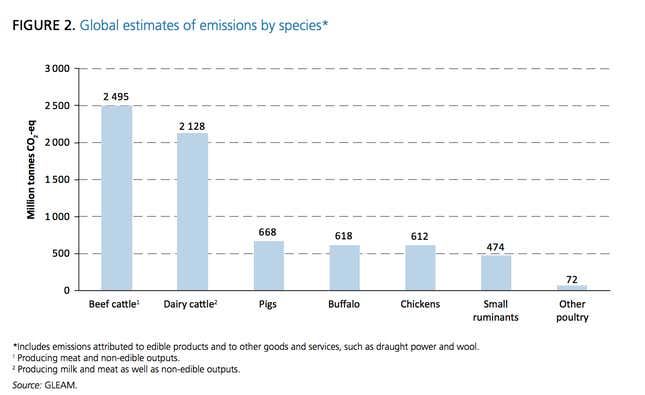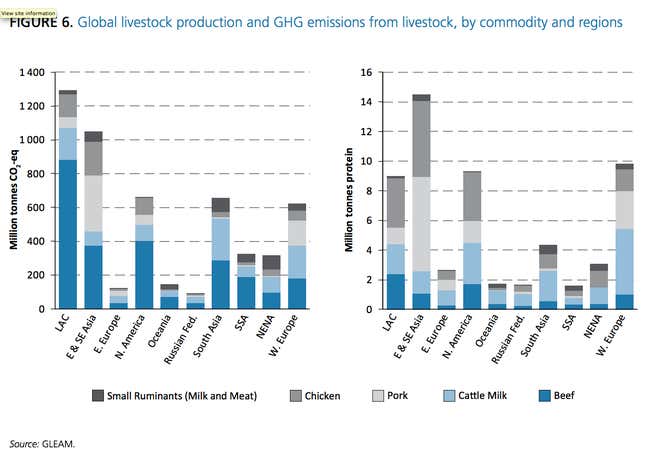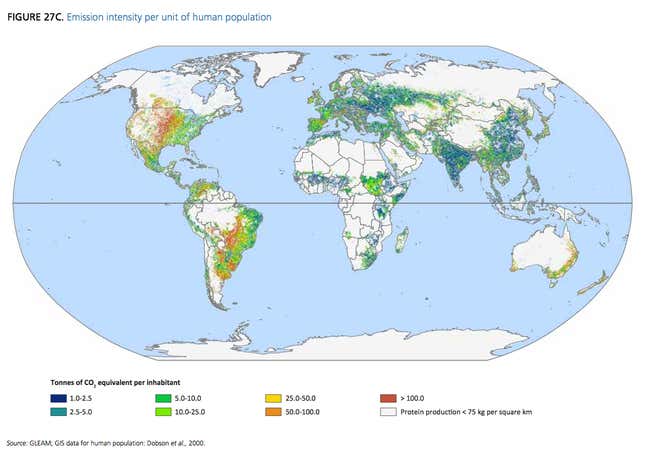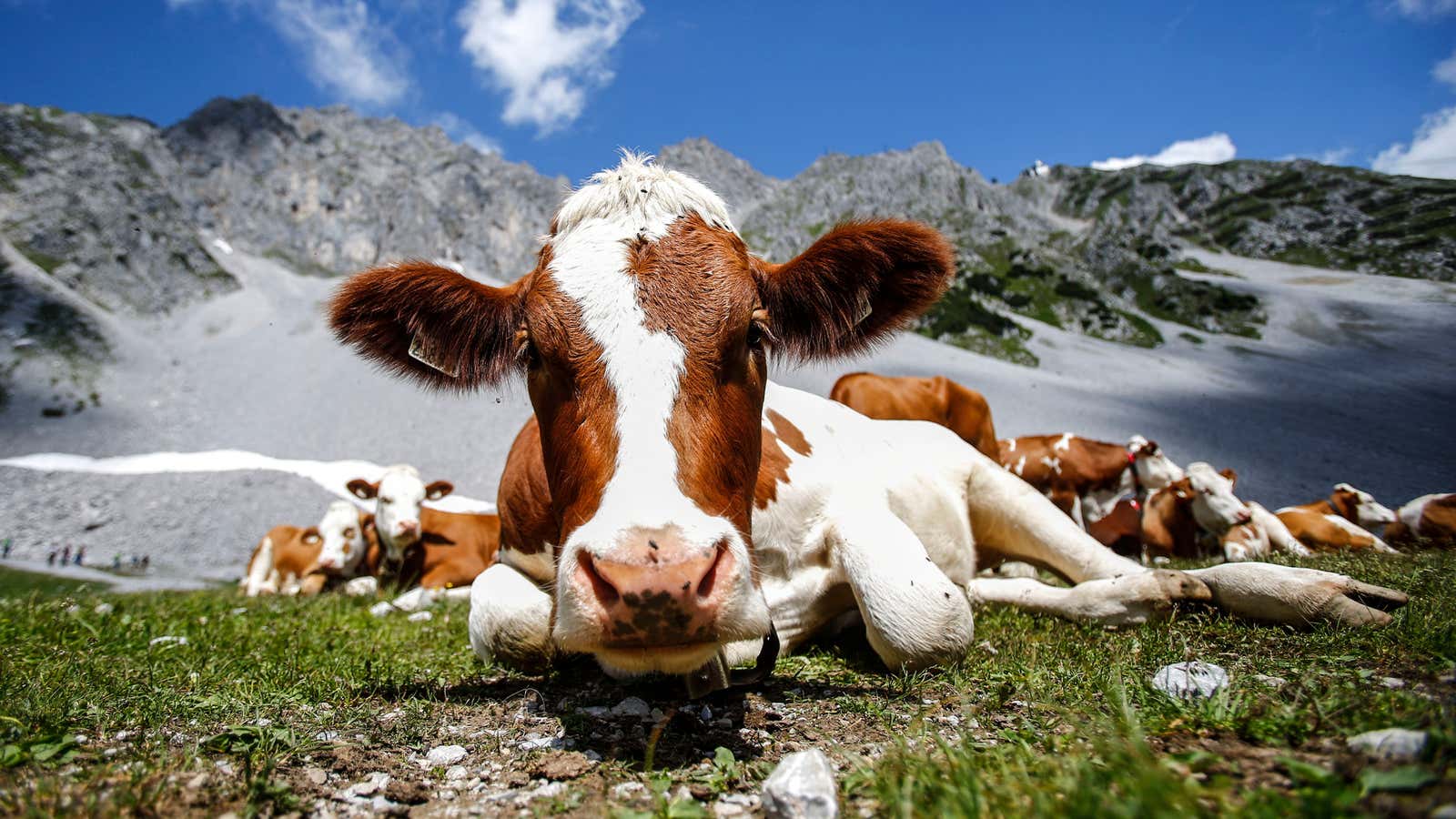If we’re going to tackle climate change, we might want to start by addressing the world’s inability to wean itself off cows.
The livestock industry is responsible for roughly 15% of global carbon emissions, according to a new climate change report released today (pdf) by the UN’s Food and Agriculture Organization (FAO).
The world consumes many and varied animals on a large scale, but cattle are especially carbon-intensive; beef and cow milk production account for roughly two-thirds of carbon emissions in the livestock sector.

The beef and dairy sectors together account for a staggering 10% of the roughly 49 gigatonnes of yearly CO2 emissions. Pig, poultry and buffalo production, on the other hand, are comparatively benign; none singularly account for more than 10% of the sector’s emissions.
Cattle carbon intensity has two main drivers: cows’ insatiable appetite for feed, which is difficult to produce, process and transport in an environmentally friendly way; and their carbon-intensive digestive system, which includes a process called enteric fermentation that releases methane.
Curbing beef consumption won’t go far enough in cutting carbon emissions, given that emerging middle classes in developing countries are hungry for more meat. According to the report, demand for meat and milk in 2050 is projected to grow by 73 and 58%, respectively, from 2010 levels.
Latin America and the Caribbean, which produce much of the world’s beef and feed, are far and away the world’s worst offenders in beef-related CO2 emissions.

On a per capita basis, the US, Brazil and Argentina are notable CO2 emitters, partly because they produce both meat and soybean, an integral component of animal feed.

Given the inevitable rise in beef consumption due to population growth, reducing beef’s impact on climate change will likely require greening its production.
Fortunately, greener methods already exist, albeit on a relatively small scale. Measures such as altering animal diets and more efficient feed farming could help lower emissions by up to 30%, according to the report.
